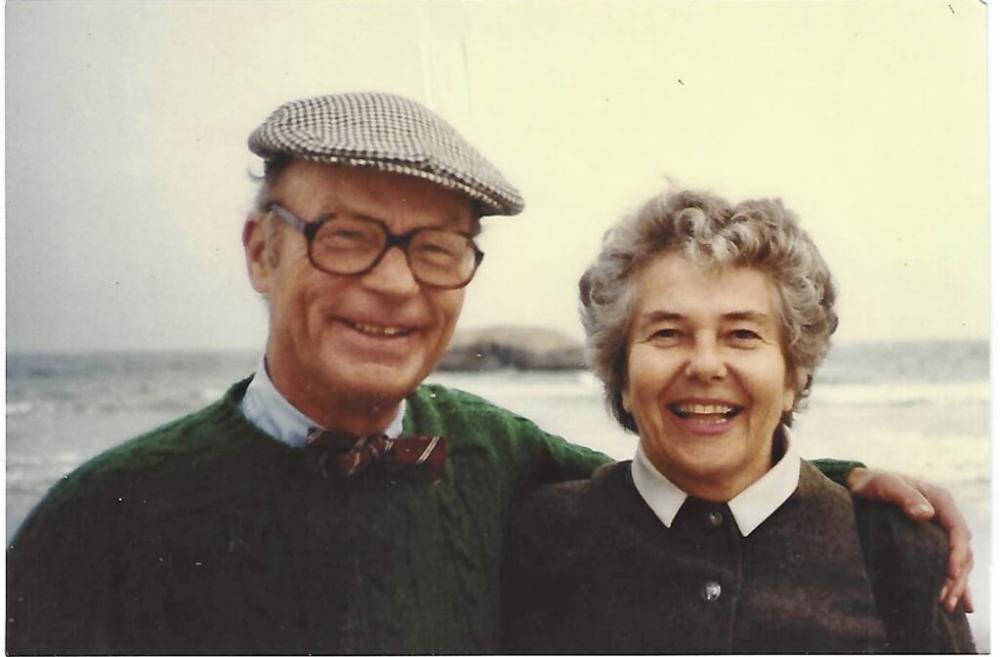 Robert T. Keeler and his wife, Peggy. (Courtesy of Peter Mithoefer)
Robert T. Keeler and his wife, Peggy. (Courtesy of Peter Mithoefer)
Dartmouth College can repurpose money a deceased alumnus left for the “sole purpose” of maintaining the school’s golf course to support other “golf-related” purposes, such as the study and design of golf practice areas or golf team expenses, the state Supreme Court ruled Thursday.
In a unanimous ruling, the court said the estate of Robert T. Keeler did not have legal standing to challenge Dartmouth’s request to modify the restrictions Keeler had set on his gift in 2002, now valued at about $3.8 million.
Keeler had included a second restriction in his will that if Dartmouth opted not to use the money to maintain the course, it return any unspent money to the Robert T. Keeler Foundation, a nonprofit that supports children in need.
It’s unclear if this is the last legal challenge the Keeler estate will mount against Dartmouth.
During oral arguments before the state Supreme Court, the estate’s lawyer, John Laboe, conceded he could instead sue the college for breach of contract.
Neither Laboe nor Peter Mithoefer, executor of Keeler’s estate and president and trustee of the foundation, could be immediately reached for comment.
The college first sought to modify Keeler’s restrictions in 2021, a year after it closed the Hanover Country Club, citing the financial challenges of keeping the club and course open.
The law allows institutions like Dartmouth to modify how they use gifts in limited circumstances: if the donor agrees or when the gift’s original purpose or restriction becomes unlawful, impracticable, impossible to achieve, or wasteful.
Keeler’s estate, which told the Bulletin it had learned of Dartmouth’s request from a story in a golf magazine, argued that the school’s decision to close the course failed to meet those requirements. It asked that the money be returned to the foundation.
The Attorney General’s Charitable Trusts Unit, which is charged with protecting donors’ intentions, disagreed and found that Dartmouth had met its legal burden. In February, a lower court rejected the estate’s effort to intervene and fight the modification, also on grounds that it did not have standing.
The court upheld the lower court’s finding in its opinion issued Thursday. The court noted that the Charitable Trusts Unit has the authority to ensure on the public’s behalf that donors’ gifts are used according to legal requirements.
In a statement, Michael Garrity, spokesperson for the Attorney General’s Office, said the Charitable Trusts Unit understands the responsibility of its duty.
“Today, the Supreme Court reaffirmed the important role that (the Charitable Trusts Unit of the Attorney General’s Office) plays in enforcing the terms of charitable gifts,” it said. “Our office takes this unique responsibility seriously, ensuring that trustees of charitable trusts honor donor intent and change the terms of gifts only when authorized by law.”
Dartmouth College did not immediately return a request for comment.
This story is courtesy of NH Bulletin under creative commons license. No changes have been made to the article.

 Current Issue - July 2024
Current Issue - July 2024